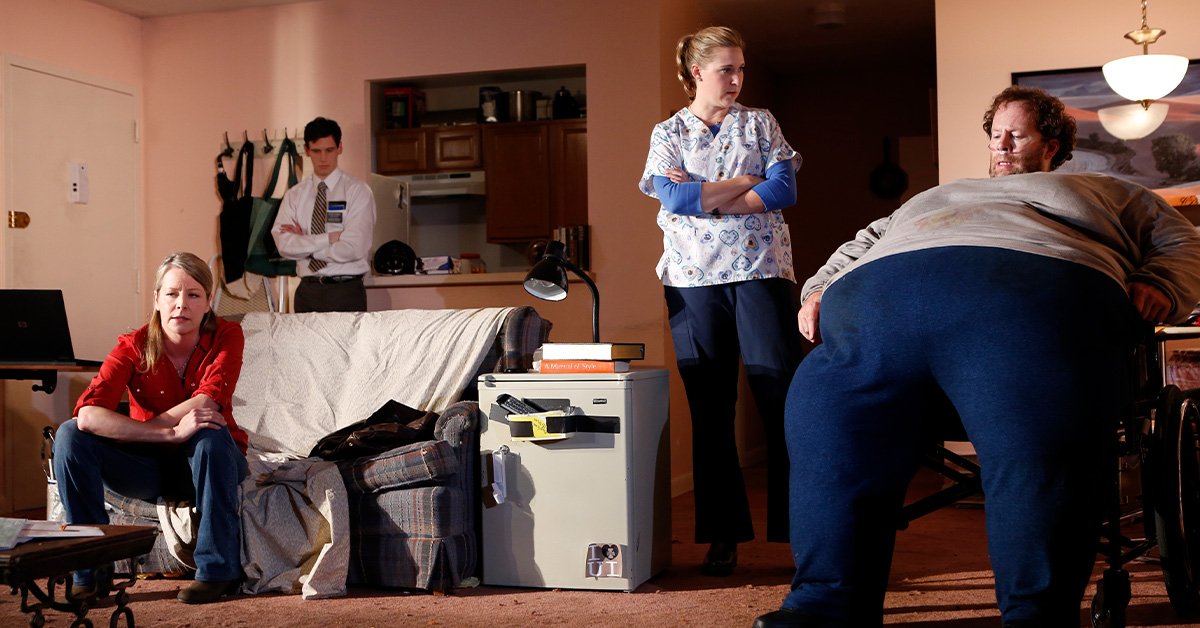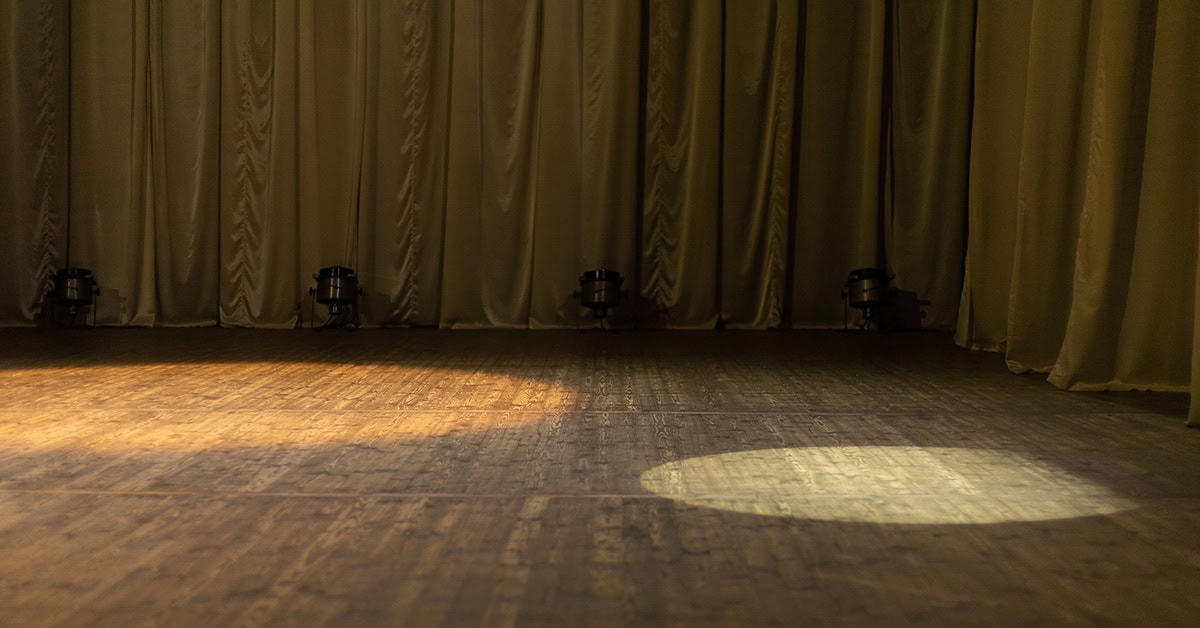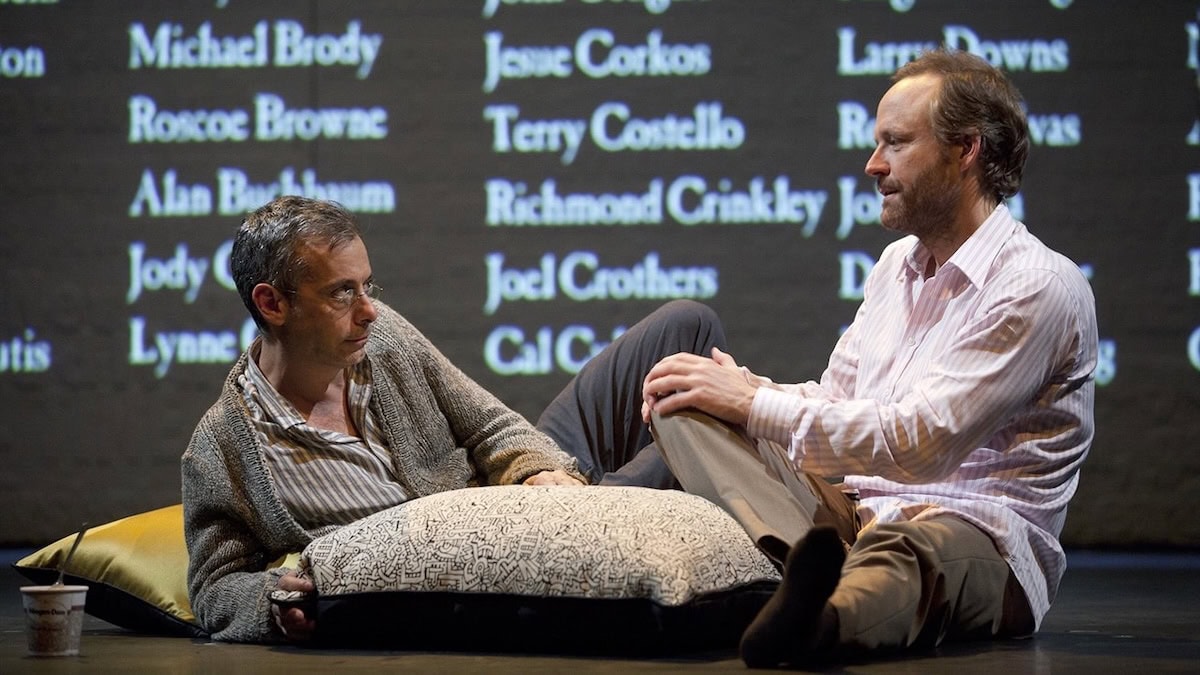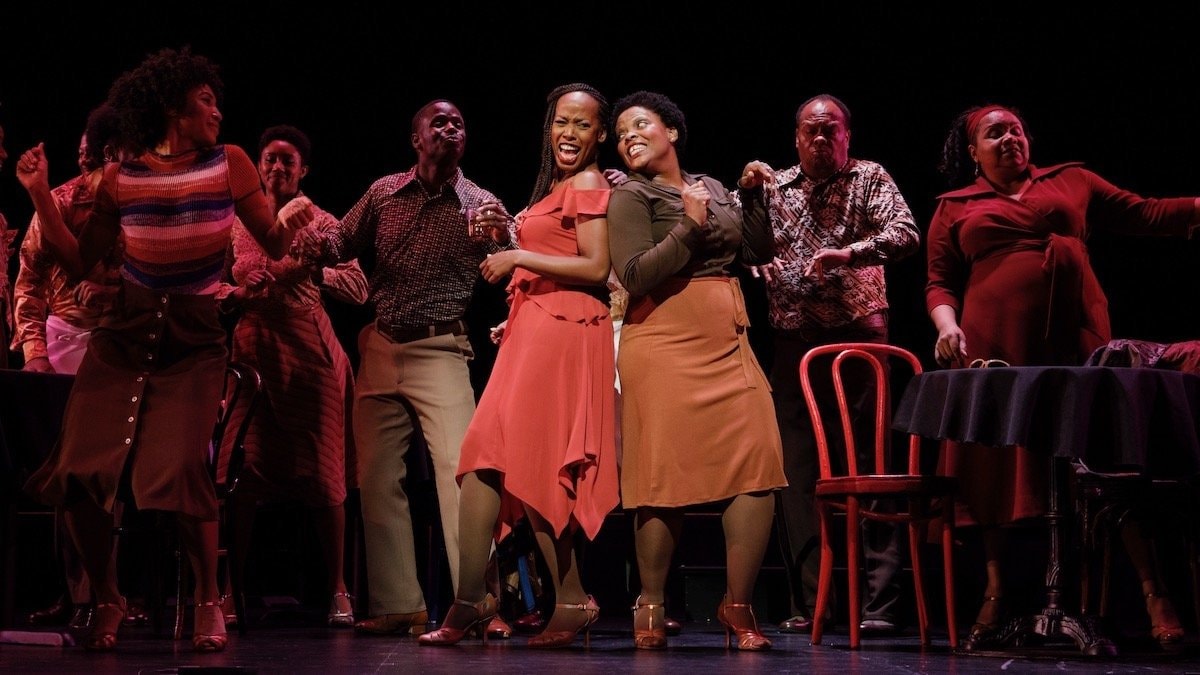
With the meteoric rise of streaming services, television has increasingly laid claim to the spotlight at the center of pop culture – and theatre artists have been getting in on the action. In fact, playwrights have been working in the TV and film space since its inception; throughout the 1950s, Paddy Chayefsky (US/UK) became renowned for his naturalistic teleplays that dramatized the life of ordinary Americans. Chayefsky started out as a dramatist, and is behind several hit shows, including The Tenth Man (US), a comedy about a rabbi performing an exorcism, and Middle of the Night (US), a Broadway drama about a forbidden courtship.
In Chayefsky’s time, TV was about small moments: changes of expression singularly captured by the camera. Theatre, on the other hand, was the site for big, bold gestures that demanded the physical co-presence of performers and audiences. If an author had written a stage play that could be filmed, the writer had, in a sense, failed at their theatrical endeavor.
But for the past several years, that on-screen landscape has been changing. In December 2022, Samuel D. Hunter (US/UK) saw the premiere of A24’s film adaptation of his play The Whale (US/UK), which tells the tale of a 600-pound recluse’s last chance at redemption. The movie stars the lauded actor Brendan Fraser, and was met by immediate critical acclaim by various media outlets. Hunter’s writing is deeply felt and introspective; in his stage works like Lewiston/Clarkston (US/UK) and A Case for the Existence of God (US/UK), the playwright deals with lonely characters who have great difficulty expressing themselves. This textured inner life is apparent in The Whale as well. The medium of film helped to zoom in, literally, on the protagonist’s self-loathing — and the result is heartbreaking.
Since its “Golden Age,” television has seen the rise of template dramas like Law & Order that demand writers who can work within a rigid formula. Now, however, there’s increasing demand for shows with a sharp perspective, and for staff writers and showrunners who are capable of delivering “a single-voiced product with a point of view and a story” (Sheila Callaghan (US/UK) to Slate, 2017). Callaghan, an executive producer behind Shameless, has a sizeable catalog of unique theatrical work. Her plays include Fever/Dream (US), an adaptation of the classical Spanish play Life is a Dream (or, La Vida es Sueño) (US/UK), and Women Laughing Alone With Salad (US), a raw feminist comedy that serves up a scathing critique of an image-obsessed culture. These, like all of Callaghan’s plays, demonstrate an ear for compelling dialogue and an adept grasp of social critique via drama; she was recruited to television when the showrunner for United States of Tara was looking for a writer. “As far as I know this is true,” recalled Callaghan to Slate, “[the showrunner] Googled ‘feminism, rape and playwright,’ and got me.”
When it comes to the culture of plays and the criticism that surrounds them, a writer is generally under scrutiny if the action of the play is unclear, or character choices fail to work. On the other hand, TV and film writers often enjoy an amount of anonymity around screened work. This gives playwrights an edge in the writer’s room: many TV writers, trained on spec scripts, replicate the voices of other creators, while playwrights have always been under pressure to write with a confident, clear and original voice.
Jordan Harrison (US/UK) — known best for his 2015 Pultizer finalist Marjorie Prime (US/UK), which explores whether AI technology can truly replace the human spirit — has been embracing the televised medium. He wrote on the latter seasons of the hit Netflix series Orange is the New Black. In describing his attraction to Hollywood, Harrison cites a simultaneous shift occurring both in theatre and in TV: where theatre is trending towards minute, organic moments, TV is trending towards depicting larger worlds. In a conversation with Slate, the playwright remarked:
For a while now, theatre has been interested in these small observations, these almost hypernaturalistic slices of life, and the world of TV shows has gotten vaster. I started writing for TV because it became a place that made sense for what I was writing.
And he certainly writes expansive stories. Harrison’s work The Amateurs (US/UK) is a backstage comedy set during medieval times that follows a troupe of pageant players as they race across Europe to outrun the Black Death — although unlike his work for television, that play is uniquely theatrical in the way it blends the realities of a plague in 14th-century Europe with a plague that’s more familiar to us in the 21st century.
So there’s a sort of “brain drain” that’s moving a lot of playwrights from dusty off-Broadway houses in New York City to the sun-flooded canyons of Los Angeles. As Harrison illuminates, it’s not just the paycheck that’s sending theatre artists from one coast to the other. What Harrison identified is that television is becoming increasingly
attractive to theatre writers because of its unique potential as a medium for storytelling.
Consider The Flight Attendant, a show on HBO Max that stars Kaley Cuoco. Created by author Steve Yockey (US/UK), the show follows a flight attendant’s sudden involvement with a complicated murder. It takes place in two realities: both the real world, and in what the writing team calls “the mind palace,” an imagined space within the protagonist’s memory where she has frequent conversations with the man who was murdered. The show relies on television’s ability to cut between locations to convey the push and pull between the flight attendant’s inner life and external circumstances.
Yockey — who recently signed a deal with Warner Brothers to produce exclusive television content for their network — served as showrunner for the latter seasons of Supernatural, and also has an expansive body of theatrical work ranging for shorts to full-length plays. His American tragedy Pluto (US/UK) details the relationship between a single mother and her withdrawn son in the wake of an incident of gun violence at the local community college; his play Bellwether (US/UK) is a chilling small-town drama about the disappearance of a six-year-old girl.
Occasionally, multiple playwrights will work on the same project — one possible reason being that playwrights hire playwrights. For instance, with The Flight Attendant, playwright Kara Lee Corthron (US/UK) was brought on to write for an episode and to serve as a story editor for the first season. Corthron’s unique voice combines bubbly dialogue and incisive social commentary with brash openness; her play Holly Down in Heaven (US/UK) is a dark coming-of-age comedy about a 15-year-old born-again Christian who collects dolls and finds herself pregnant. Corthron’s demonstrated sense of black humor ignites the plot of The Flight Attendant’s first season, and is also infused into other shows that she’s worked on, such a Servant and the second season of Netflix’s You.
Another HBO show with a team of playwrights behind its scripts is Succession — though unlike The Flight Attendant, the main draw of Succession lies not so much in its concept, but in the ripping quality of the dialogue (and, of course, excellent performances on the part of the actors). British playwright Lucy Prebble (UK) is an executive producer for the show, with Susan Soon He Stanton (US/UK) serving as the show’s staff writer – meaning she writes the majority of the dialogue that moves along the plot – and Will Arbery (US/UK) having been brought on as an executive consultant for the show’s third season and a writer for the fourth. Stanton is the author of Today is My Birthday (US/UK), a hilarious piece about loneliness in the age of connection, told through a mixture of phone calls, voicemails and radio spots. The play follows an aspiring writer’s journey back home to O’ahu after a stint in Manhattan, and even within a heart-filled script, Stanton’s grasp of the action-packed dialogue (familiar to fans of Succession) is apparent in her script.
Arbery came onto the radar with Heroes of the Fourth Turning (US/UK), a 2020 Pulitzer finalist play about four young conservatives in Wyoming whose backyard toast to their mentor quickly devolves into spiritual chaos and a debate about clashing generational politics. Frank Rich, an executive producer of Succession, told the New York Times in 2022 that Heroes struck him as something utterly new; “presenting a milieu that has never been dramatized before at the high end of theater or television.” Arbery’s strength is in writing fully realized characters with a variety of perspectives — and Rich cites this strength as his reason for pitching to bring Arbery onto the Succession team.
Another strength playwrights have that can help them create compelling work for television is their awareness of an audience’s response to controversial issues. This can equip playwrights to tackle difficult subject with grace. Martín Zimmerman (US/UK) is the author of On The Exhale (US/UK), a one-woman play about a liberal college professor whose brush with gun violence sparks an unhealthy curiosity in her about the power of the weapon used to commit the crime. When it premiered in 2017, the play was praised for its ability to make its points without “preaching to the choir” (The Hollywood Reporter). Zimmerman writes for Ozark, a show that deals with cartel violence and the drug trade; perhaps it’s his touch that helps the show walk the line between its intense subject matter and its entertainment value as a thrilling piece of television.
Aside from the expansive shows mentioned, there’s a style of television that has deep theatrical roots: the multicamera sitcom. Gloria Calderón Kellett (US/UK), a Los Angeles-based playwright who was a winner of the 40th Annual Samuel French Off Off Broadway Short Play Festival (US/UK) in 2015 for her play Blind (US/UK), had always written short plays. She realized that sitcoms — with their formulaic structure and contained set — were the perfect place to break into the TV industry. Her drive to revive the multicamera experience lead to the creation of Netflix’s One Day at a Time, which uses a live studio audience, no non-diegetic transitional music and sometimes keeps to a single set for an entire episode, making it a highly theatrical TV experience.
Whether it’s for stylistic reasons or for the funding opportunities provided in Hollywood, it’s undeniable that the space between live theatre and onscreen storytelling is more permeable than ever. Established producers who started their careers in theatre will continue to pull talented playwrights into the fray, and those playwrights who are after the benefits of the onscreen medium will likely dive in if provided the opportunity.
Once upon a time, a life lived for art was lived with the notion that such a life was non-remunerative. Perhaps too, the increased participation of playwrights in an onscreen medium is chipping away at the theatrical imagination — but it’s also keeping some authors alive. And all this being said, incredible new shows like POTUS (US/UK), The Lehman Trilogy (US/UK) and Trouble in Mind (US/UK) continue to be written or revived, and all of these shows rely on the mutability of actors and that joyous relationship between performers and audiences.
If you have a favorite TV show, it’s worth taking a look to see what other work that show’s writer has done. Maybe you’ll discover your next favorite play! And next time you’re watching TV or a movie, be sure to check out the credits — it might have been written by the author of your off-Broadway obsession.
…
Discover more playwrights at the Concord Theatricals website in the US or UK.
Header Image: 2012 Playwrights Horizons production of The Whale (Joan Marcus)

Recommended Shows for Drama Festivals

The Truth Behind… The Normal Heart

